

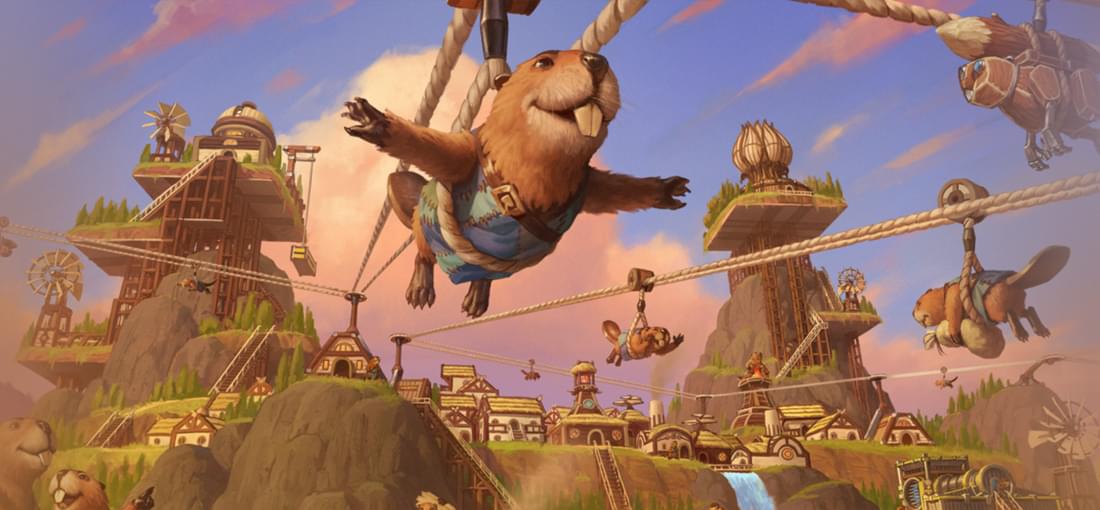
This is a really good city builder with innovative dam-building mechanics. It has a good foundation to build on but it does have a few problems that happen around mid-late game that prevent it from feeling like a complete experience which pushes the player to build into a larger city. At a certain point in time, you have largely researched and built everything pertinent and there is not enough goals mid-game to fill out the remainder of the experience. Well-being status does not really have many implications in the game and feels like a developmental dead-end. There is a couple different factions with slightly different play styles. I think a battle mechanic would be a lot of fun between the two factions. This would really add a little more challenge to those who have already mastered how to overcome drought.
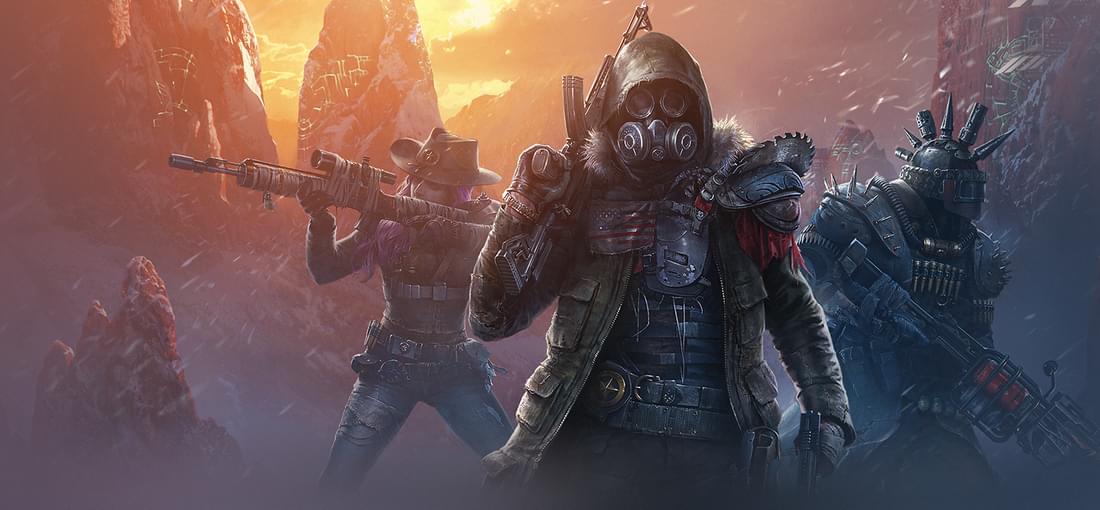
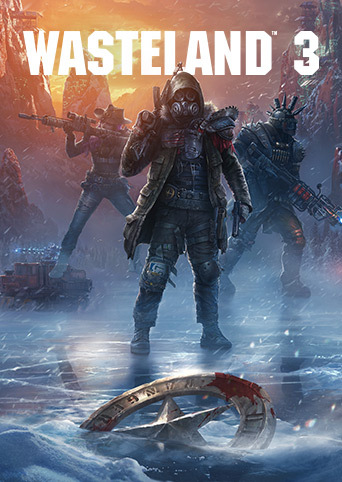
Ive played basically every post-apocalyptic game associated with Fallout and its predecessor Wasteland. After about 20 hours I would say that the game is more or less complete but it has some issues that hold it back from greatness. PROS: -Weight management was scrapped, all inventory shared. Weight balancing is rarely fun in an RPG and, with the amount of items, it wouldve been quite boring and painful to manage. One design decision Im thankful for -It retains the same dark and violent humor that made the earlier Fallout games memorable -Interesting story and the feeling that your choices are really making an impact. Lots of "little things" that seem to have no impact can have a major impact. Well implemented story mechanics. -Combat system feels more cohesive but also more difficult than WL 2. Harder to exploit certain playstyle CONS: -Loading times are atrocious and hamper the enjoyment of the game mid-to-late since you will be doing a lot more travelling. All people of various specs have this issue, having a top of the line computer does not correct this. The wait times are typically 30-40 seconds which is not so bad except that you will often have to go through 3 or 4 loading screens to get to your destination. There is no fast travel to speak of so you will have to wade through an entire map just to get back to your truck at times. A fast travel map, at least within the current location, would have made up for poor loading times. Backtracking is very painful for this reason. -The game gave me a timed mission out of nowhere but wasn't clear that there was a timer which was a bit odd since the game had never had a timed mission up till this point. I failed it simply because the game didn't signal to the player that it was timed. I guess this is kind of the unpredictability that you expect from WL. -Numerous problems related to poor optimization. Stuttering, major FPS drops but overall, its playable. I recommend, but you may consider waiting for some updates.
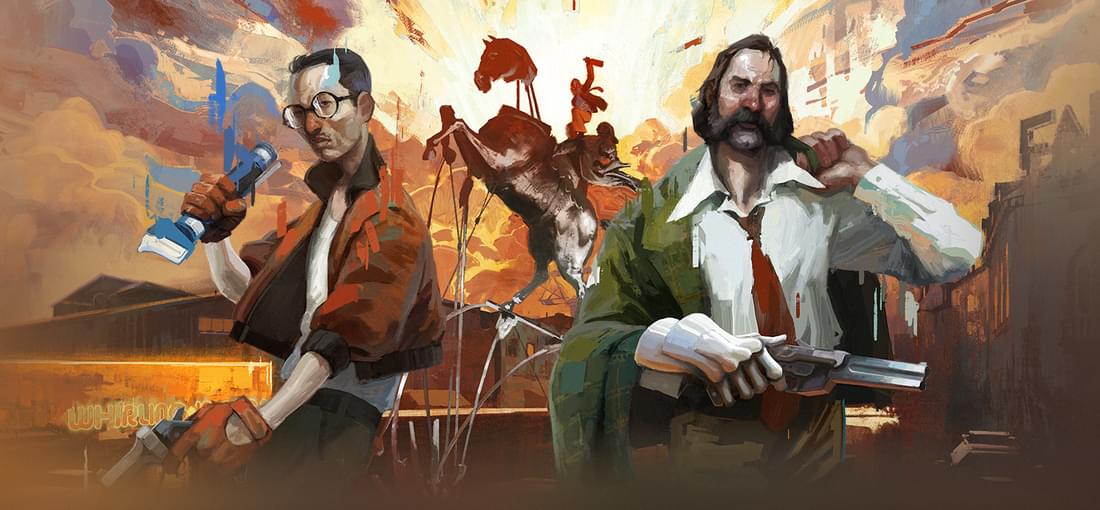
This is an extremely dialogue-heavy choose-your-own-adventure-game with LITE RPG elements. The gameplay mainly consists of a point system that the player allocates to fulfill various traits which alter the success of dialogue and choices that the character makes. The world is a bit bizarre and is heavily preoccupied with political overtones that consist of choosing between liberal and conservative stances. Oftentimes, you will have to return to a situation to pass a skill check that you would not have previously. The writing, although lengthy, is funny and I genuinely laughed out loud at a few moments. The main problem for me is that it is more graphic novel than it is game at times. It wouldve been nice to feel like an active participant in the world rather than a driver that steers a wheel one direction or the other. It also couldve done with some action scenes that break up the monotony of the game after a few hours. Overall, the gameplay is too simple to really be considered a game. The RPG lite qualities ultimately just become the framework in which you endlessly maneuver through dialogue choices. Eventually I lost interest after about 5 hours once I understood the peak of the gaming experience in Disco Elysium.

Airships has a strong emphasis on building and designing and the options are satisfying as there are hundreds of different upgrades/modules/decorations so the customization is deep enough to get a serious player to dig in. In this respect, the game shines. In my time I only played the Conquest mode which is basically the campaign mode which I felt was very underdeveloped. There isnt really any type of story or diplomacy feature between the factions. At this point, it just boils down to a simplified game of Risk - Invade, Capture and Defend your way across the tiles on the map to get resources. That is basically the full extent of the campaign but it is still quite interesting as it challenges you to do whatever you want with your resources. Do you build a giant supership? - your own death cruiser or do you build smaller ships with specific purposes in mind? The game has no limits here which is a strong selling point for me. However, the graphics are pretty rough and give away the illusion that this is anything but an indie game with a small dev team. Overall, I recommend Airships and look forward to what the dev team is planning to offer. The combat and ship designing I would say are complete at this point in time but the game is still lacking in diversity when it comes to a rich campaign mode.
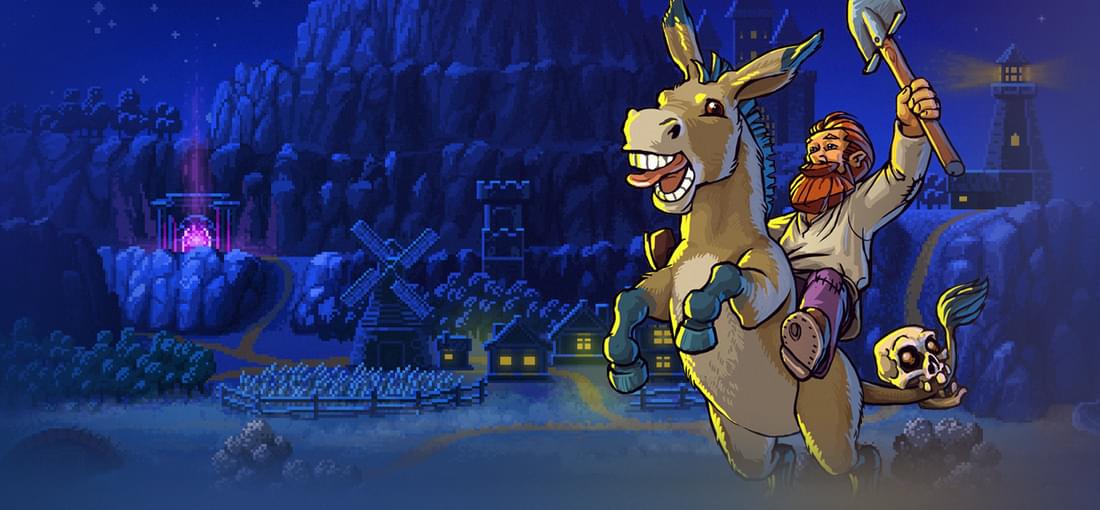
It has an original premise that manages to keep it fresh and stand apart from being too similar to the obvious Stardew Valley/Harvest Moon comparison; This is what kept me playing for roughly 10 hours. The setting is fun; the subject matter is darkly humorous and is the strongest aspect of the game. After that much of a time sink, I really thought there were a few huge flaws that could have made the game more enjoyable. First of all, this is a grindfest only for those who are seriously into that grind. Long production chains with MANY intermediary steps requiring travel across the map for a slow payout. The game forces you to become a jack of all trades since many of the production chains are interlinked with other disciplines but I really only found the gravekeeping/priesthood to be the most developed and amusing of all the trades. There is a strong emphasis on workshop creation. Movement speed is brutally slow and there doesnt appear to be any practical way to increase his speed permanently or even run. Instead the game wants you to unlock shortcuts with materials which is just boring. There is not a robust combat system or any reflex activities to break up the monotony of the game. Inventory management is an absolute nightmare in this game. No option to expand a backpack or increase your inventory. Eventually, you'll be stockpiling so many items that it drifts into absolute tedium attempting to manage it. The game revels in its mysteriousness by not being very clear at times and I believe its unpredictable nature is part of its charm, but it doesn't seem to do the player any courtesy at all. I eventually quit the game when my graveyard got full. I sunk tons of hours and resources into upgrading the church only to be hit with a hurdle that required an egregious amount of money. Overall, I really enjoyed the game for its content and setting especially how you walk a fine line of criminal activity, but wished it was a bit more "fun" at times.
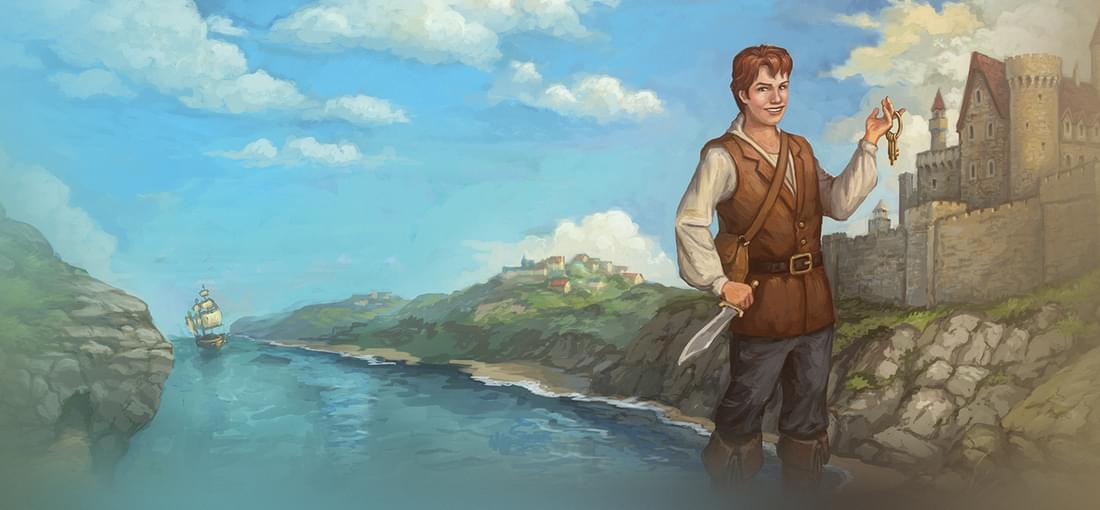
To put it lightly, Quest for Glory basically shaped my opinion of gaming forever. I must have replayed Shadows of Darkness more times than I can count. So I was pretty excited to play a game based off the original games but I was turned off by several design decisions. I didnt immediately like the isometric style, but was able to overlook it. I really think the game could've benefited from the same 2-D approach as the originals in terms of budget and nostalgia. The over-emphasis on "actions" that could be performed on every object was a slight annoyance but the time management was neat as it gave you a sense of urgency. Over time, the game began to become repetitive and I found myself walking around the same halls more than I did pretty much anything else and spent several hours in the same rooms committing to the same routine every day. But ultimately, the biggest gripe for me was when I realized that all the other students could go out to the town except for you. When they said this game was called Hero University, they LITERALLY meant that you are confined to the university. This was extremely disappointing as the game hinted at an alternate path and a means to escape the university grounds early on, but this was not so. And for a game that was priced at 30 dollars with several years of development under its belt I really wasn't prepared for this slap in the face. So after day 10 I quit playing the game mainly because I was just getting bored of repeating the same actions and not being able to go out into the town and actually apply any of my skills. It wouldve been more interesting to be able to go out and make a difference in town, take some side-jobs independent of the university and be able to Explore in the same vein as its predecessors and maybe even be given the option to undermine the University. I may try Hero-U again, but I dont think I will.
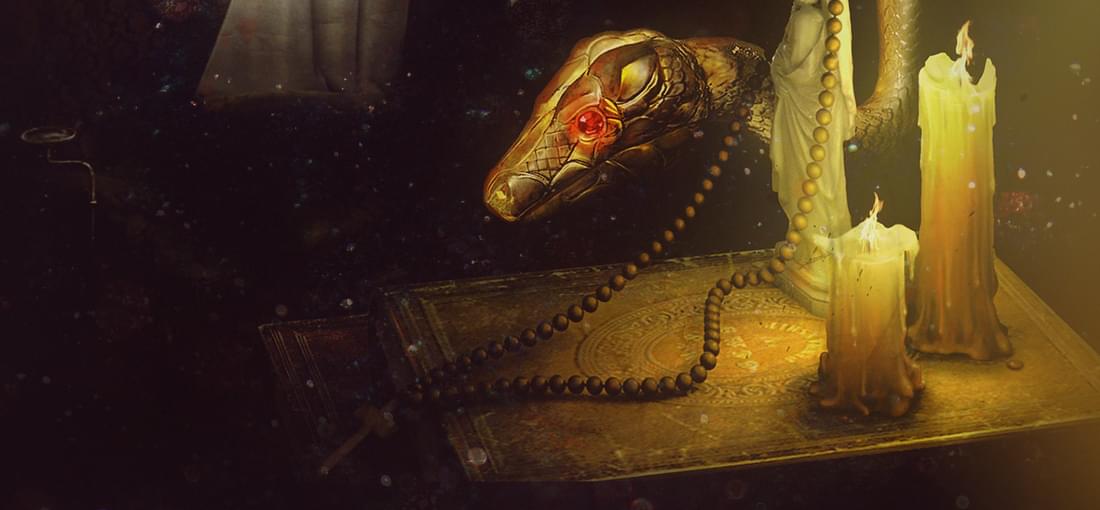
This was the game that introduced me to point-and-click adventure games and left a lasting impression on me that carried on well into adulthood. The memorable characters and atmospheric creepiness of the French Quarter is chilling and memorable. In comparison to the original game, I preferred the voice work of the original and that was about the only thing that I wished I could have back. Tim Curry's Gabriel Knight imbued much more personality and the original Narrators voice sounded slightly more authentically New Orleans. All other voices were passable; not great, but passable. This was my only issue with this remake which, overall, I felt was highly polished.. But then I was reminded of just how tedious some of these puzzles were. How they must be done in a correct order to trigger events and, therefore, forced quite a bit of backtracking on the player. The puzzles are usually fairly easy to figure out once you have the correct item, but finding that correct item was the actual puzzle at times! The original series required so little performance that one could zip back and forth between locations in seconds. Unfortunately, we are at the mercy of load times and slow character movement in this remake which hampers a game that placed a huge emphasis on travel. When you are stuck on a puzzle and must review all your options then having to move around from screen-to-screen can be your worst enemy at times. It was still enjoyable, but the structure of the original game was a lot of screen switching and I feel this didn't translate well into a remake that demanded a high performance.

This was my introduction into the Tex Murphy series. I had heard it was a remake of the original Mean Streets and that it was a better version so I thought that I would begin here. I had played many FMV games, owning a Sega CD, and I am a huge point-and-click adventure gamer but I was really not prepared for this type of game. What I enjoyed most was the witty dialogue and well-acted scenes but I found the gameplay to be formulaic and a little uninteresting. The plot was what you might call a "classic" detective story ripped off of old noir movies which is what this series is based on. The interface is way too clunky when in 3D and will require you to use both your mouse and keyboard to navigate properly. Movement, strictly with your mouse, is slow and painful--much too imprecise for the object hunting that you will mostly do when in this mode. Most of the puzzles will be of the find-object, ask the appropriate people, and be prompted to figure out the jigsaw puzzle. This is the usual pattern for a good part of this game, but I was intrigued by the dialogue so I stuck it out. The video quality is very grainy and full of blocks, which really shows its age. I believed that this game was a worthy buy for 5.99 but 10 dollars is a little much for a game this old, but I think that may have something to do with the download size. I think this is one of those games that you had to have grown up with to truly appreciate its design.
No game adapts the do-anything, be-anybody attitude better than the Guild Gold. To get an idea of how this game is structured you should see how it begins. The goal of the game is to be the most powerful person in the city of your choosing, and so you will choose a town which determines the difficulty level and the space available to build your own buildings-otherwise you will be forced to buy buildings from people which is more expensive. Than you will choose the profession of your father and your mother which will generate a character with pre-defined abilities based on your selection. You will than choose what profession you would like from thief to priest. This is the full extent of character creation, and you are than given a business to run based on what profession you choose. This is where the game gets interesting as each business is run very differently and provides different perks. Keep in mind you will not see your character as the game is menu-based but the menu buttons are the visual layout of your screen. For me, the game had a tendency to crash although for the most part it is very solid and, fortunately, the game autosaves every turn which equals one year in game time. Another issue is the very confusing interface, and a limited tutorial, that will take some time to learn. Combat is also clunky and not very well implemented.